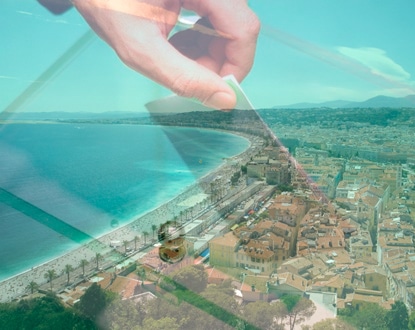It is well understood that in politics (almost) all tactics are allowed to assert one’s ideas and especially to discredit those of one’s opponents. However, when holding a public office (or dreaming of doing so), one should always keep in mind the proper functioning of the institution they represent.
 This is why we appreciate only moderately the statement from the socialist leader (and candidate for the 2014 municipal election) regarding the ranking on security published by L’Express in its latest issue.
This is why we appreciate only moderately the statement from the socialist leader (and candidate for the 2014 municipal election) regarding the ranking on security published by L’Express in its latest issue.
First of all, far from us to question the seriousness of this survey, one might endlessly discuss the criteria for scoring. It is well known that numbers, despite their undeniable accuracy, can be manipulated to say just about whatever one wants. Perhaps it would simply be more useful to make a more homogeneous comparison with cities of the same size or the same sociological profile.
Then, we fail to see what is cheerful about the finding that Nice is a city where insecurity reigns. (Newspaper headlines are the first sales argument just like shop windows. Caution!).
Undoubtedly, it would be better to calibrate the words and distinguish between “security issues” and “insecurity”. Those who are accustomed to traveling and know other horizons could elaborate and explain what true “insecurity” is.
On the other hand, the political debate should aim more at problem-solving rather than at denouncing the responsibilities of one or the other. It is no secret that the mayor of Nice has a tendency to engage in communication to the point of sometimes flirting with propaganda. It would be preferable that his opponent, who aspires to succeed him, does not fall into the opposite speculation…
And what if we left shadow play to the techniques of Chinese theater?


